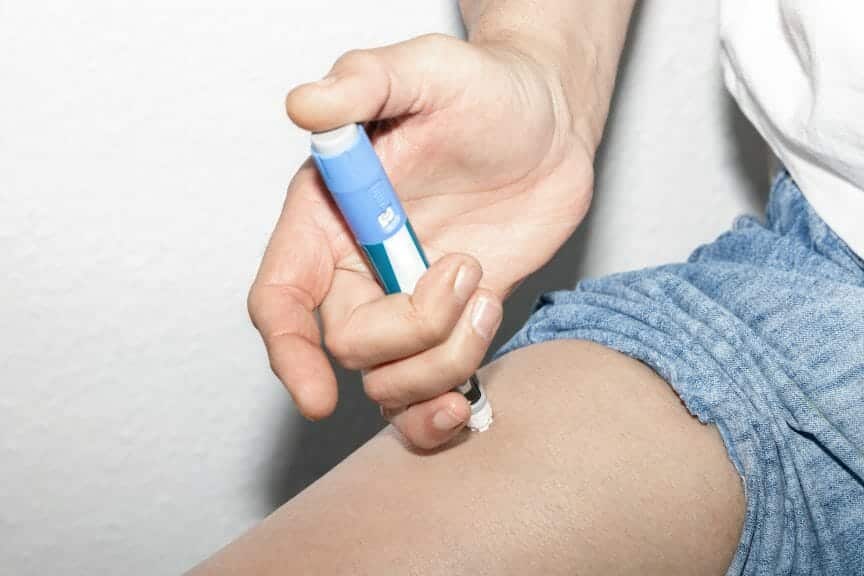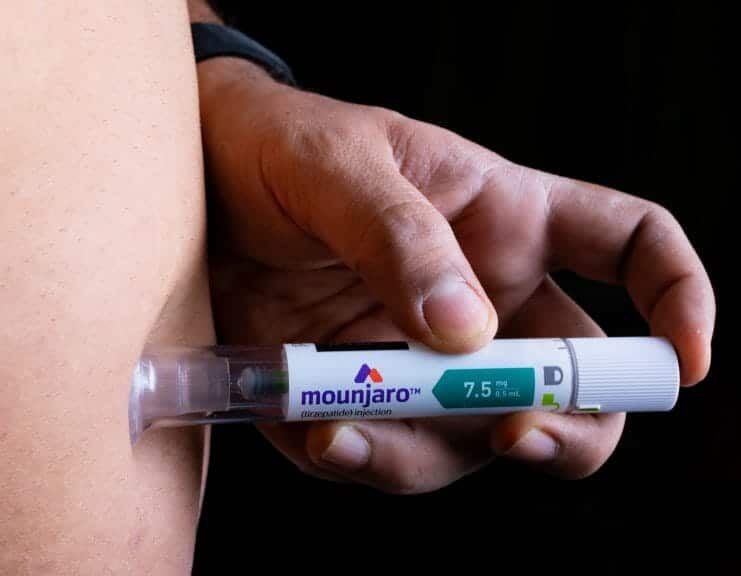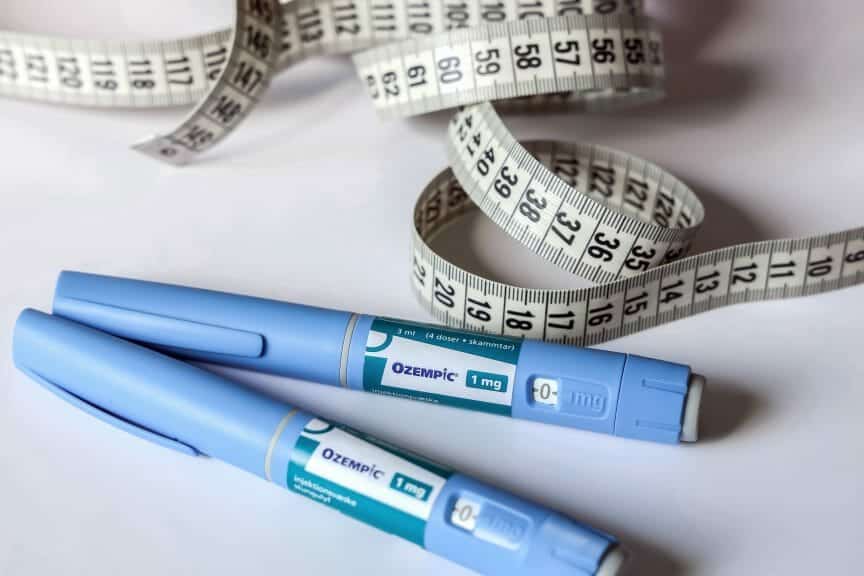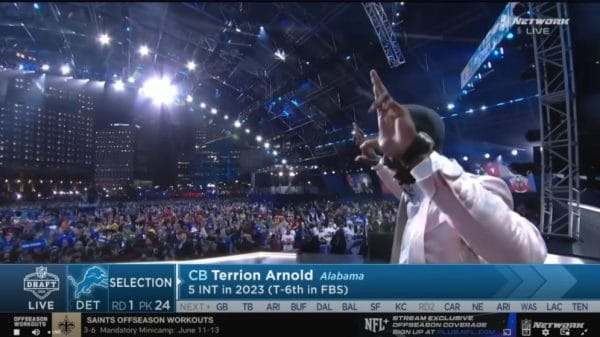Wegovy, and Mounjaro, and Berberine, oh my! The alluring ‘magic’ of the weight-loss drug Ozempic is leading American society down a shallow and selfish road.
But upon closer inspection of these drugs and supplements, what we find hiding behind the curtain is far less magical and far more serious for ourselves and others.
What is Ozempic?
Ozempic is a drug passed by the FDA in 2017 for use in treating type 2 diabetes. It is a brand name for semaglutide, which mimics the GLP-1 hormone. GLP-1 regulates blood sugar levels and reduces appetite.
As a result, Ozempic can help people lower body fat and lose weight. In fact, in 2021, the FDA approved Ozempic as a drug specific for weight-loss.
Since then, Ozempic has skyrocketed in popularity. First, celebrities revealed how they used Ozempic to slim down; then, ‘normal people’ documented their transformations on social media.
The mainstream usage of Ozempic as a weight loss drug marked a change in its previous perception as a medical drug for the general population and a cosmetic drug for celebrities.
This turning point set into motion the creation of similar drugs and supplements after the abrupt supply-and-demand change caused the current shortage of Ozempic.

Credit: Shutterstock/Natalia Varlei.
Why are so many Americans using it?
Let us take a closer look at why Ozempic is so popular.
The idea of “celebrity” is inherently positive, if only in an unreachable, better-than-the-rest way. The products celebrities promote become tethers to their world. It makes sense, then, that regular people would want to start using Ozempic with the hope that they could look like the celebrities who use it too.
Social media also contributes. The electronic web of systems and apps functions as an arbiter of taste, information, and conscience.
Platforms like TikTok make it easy for users to create and consume content about drugs like Ozempic. Users document their experiences with the drug through before-and-after photos and vlog updates.
This content normalizes the use of Ozempic and other such drugs for weight loss, in turn normalizing the underlying messages about body image and Western beauty standards.
Wegovy and Mounjaro
The popularity of Ozempic, and the strength of Western diet culture and beauty standards, sparked the creation of similar drugs and supplements including Wegovy, Mounjaro, and Berberine.
Wegovy, like Ozempic, uses the active ingredient semaglutide to mimic GLP-1. Unlike Ozempic, Wegovy’s main purpose is to help people lose weight. It has a higher concentration of semaglutide per dose in order to achieve that.
Intended to help lessen the obesity epidemic in America, Wegovy is meant for people who have a body mass index (BMI) higher than 27. Over 120 million Americans qualify, and that is in addition to those who qualify for a high BMI in tandem with type 2 diabetes.
Due to the overwhelming demand for Wegovy, Novo Nordisk, the maker of Wegovy, has extended current restrictions for new Wegovy prescriptions, and put further restrictions into place to limit the amount of people who can access the drug, especially for non-diabetic purposes.
Mounjaro, a drug that uses the active ingredient tirzepatide, functions similarly to Wegovy and Ozempic in terms of its weight-loss potential. However, the FDA has only approved Mounjaro for treatment of type 2 diabetes and has yet to approve it for weight-loss.

Berberine
Berberine is the most recent addition to this cast of drugs. Unlike the other drugs, Berberine is a supplement derived from plants. People call Berberine “nature’s Ozempic” on social media.
That Berberine is a supplement and not a drug means two things:
1. It is cheaper and easier to acquire than Ozempic, Wegovy, and Mounjaro.
2. It is subject to less regulation by the FDA.
Ozempic, Mounjaro, and Wegovy can cost over $1,000 per month without insurance–and insurance often will not cover people using the drugs for cosmetic rather than medical purposes. These drugs must also be prescribed by a doctor.
Meanwhile, Berberine can be found for $20 on Amazon.
Berberine was tested on animals rather than humans, however, so people are skeptical the research may apply to human use. This is not to say Berberine is without benefits.

Individual side effects of these drugs
While these drugs and supplements are incredibly helpful–and at times life-saving–they are not without their drawbacks. Many patients report gastrointestinal issues.
For example, Ozempic reduces appetite by causing food to stay in the body for longer periods, making patients feel full longer. In some cases, though, this causes nausea and even gastroparesis.
Rapid weight loss can also cause a loss of lean muscle, which is necessary for healthy bodily function.
Many people view these injections and pills as weight-loss “magic,” but that perception is misleading. While the positive effects of Ozempic are abundant for a person trying to lose weight, it must work in tandem with lifestyle changes.
Moreover, people taking these medications for cosmetic purposes often encounter different side effects, both physically and mentally. Often this includes body dysmorphia.

Credit: Shutterstock/Tero Vesalainen.
Nationwide consequences
CNN stated that 200,000 more people were prescribed Ozempic this year than last year. Thus, despite the developments of Wegovy, Mounjaro, and Berberine, there is a shortage of Ozempic.
Given the restrictions surrounding Wegovy, people with type 2 diabetes who need Ozempic are thus denied access to life-changing treatment.
Because of these shortages, off-brand products have increased in abundance. The Wall Street Journal found over 50 websites that sell Ozempic-derivative products, despite no FDA approval and caution against human use.
People may also encounter such products in social media ads, where companies highlight their discounted prices to draw people in.
But these sites and their products lack information: what they are, how they should be administered, and what research–if any–exists on the drugs’ effects. This is extremely dangerous and promotes misuse.
With the shortages, however, people with type 2 diabetes may be forced to turn to these off-brand products. Some people looking to lose weight may intentionally choose these off-brand products, finding them to be a more ethical weight-loss drug than Ozempic given they aren’t intended for type 2 diabetes treatment.
For others, the price difference is enough.
What can we learn from this?
The Ozempic shortages underscore how deeply American society is impacted by beauty standards that encourage thinness and shame bigger bodies. Diet culture promotes the use of weight-loss products, and the use of weight-loss products promotes diet culture.
We have found ourselves in a cycle that leaves almost everyone unhappy and unhealthy.
This is not to place blame on the people using Ozempic to align with the beauty standards promoted in the U.S., but rather to look at the system promoting these standards in the first place.
A culture that is inducing people to prioritize their own appearance over the health and well-being of themselves and others is a culture that needs to be changed.














